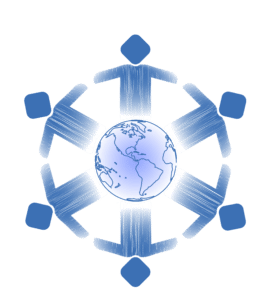The world’s drug overdose epidemic continues to worsen, affecting every corner of the planet. Globally, substance use was responsible for 11.8 million deaths in 2017, which represented one in five deaths, more than the number of deaths from all cancers combined (Ritchie & Roser, 2019).
The financing for addiction treatment is relatively low compared to other diseases (KFF Daily Global Health Policy Report). In the United States, there are only about 4,400 actively practicing physicians who are certified addiction specialists, far below the 6,000 that were needed based on an estimate in 2009, long before the peak of the opioid overdose epidemic. According to the American Society of Addiction Medicine (ASAM), as of February 2019, only 66 of the nation’s 187 accredited medical schools offered addiction medicine courses/training (ASAM, 2019).
The lack of physicians specializing in addiction treatment exists in the context of a worldwide healthcare provider shortage, even prior to the increased demand which arose due to the COVID-19 pandemic. According to the Association of American Medical Colleges, the U.S. could see a shortage of 37,800 to 124,000 physicians by 2034, a shortfall spanning both primary- and specialty-care fields (AAMC, 2021).

Meanwhile, the WHO estimates a projected shortfall of 15 million health workers globally by 2030, mostly in low- and lower-middle-income countries (WHO, 2022). According to a study by the Institute for Health Metrics and Evaluation (IHME), large gaps in healthcare and health worker shortages have been observed across sub-Saharan Africa, South Asia, North Africa, and the Middle East. With doctors and nurses concentrated in cities, the gap is widest in remote rural communities (Panjabi, 2021). Sub-Saharan Africa faces the greatest challenges: while it has 11% of the world’s population and 24% of the global burden of disease, it has only 3% of the world’s health workers (Anyangwe & Mtonga, 2007).
The lack of investment in the education and training of health workers in some countries and the mismatch between education and health employment and population needs are responsible for continuous shortages. Furthermore, as the international migration of health workers continues to rise, this has exacerbated health workforce shortfalls, especially in low- and lower-middle-income countries (WHO, 2022).
Addiction impacts all body systems, and consequently, all health professionals should understand its effect on their patients to provide efficient treatment and maximize their chances of recovery. For instance, infectious disease specialists must understand that substance use disorders have been associated with higher risks of HIV and hepatitis; gastroenterologists need to grasp the links between alcohol use and esophageal and liver damage; dentists will see the increased risk of poor oral health of tobacco users; and pediatricians and pediatric psychiatrists should understand the links between adolescent substance use and mortality and mental health disorders.

Addressing the shortage of physicians specializing in addiction treatment requires a holistic approach that includes interventions aimed at the following objectives:
- Increasing the overall number of physicians.
- Training all physicians to respond to patients with substance use disorders.
- Increasing the number of addiction specialists.
The Addiction Training for Health Professionals (ATHP) program, an initiative at the Frank Foundation, aims to address each of these problems by:
- Creating a globally available medical school curriculum that contains an integrated approach to addiction education, establishing a standard for competency-based medical education, and preparing all medical students to respond appropriately to patients with substance use disorders.
- Offering medical students the opportunity to incorporate addiction training into their medical school years through participation in the Scholars’ Program. Medical students will be able to evaluate the effects of clinical experiences related to substance use disorders to discover the combination of clinical experiences that most effectively reduces the stigma that medical students have toward patients with substance use disorders and encourages medical students to counsel patients on substance use disorders with higher frequency.
- Reviewing curriculum materials for addiction content in residency programs through the Virtual Visiting Scholars Program.
- Providing free continuing education for all physicians across specialties so that they may recognize the impacts of substance use disorders on their specialty and intervene to improve patient outcomes through Professional Development courses.
- Encouraging more physicians to specialize in addiction through the ATHP FRRE Program.
- Creating and providing specialized training materials in addiction through Graduate Courses.
ATHP at the Frank Foundation aims to educate and improve the capacity of the entire health workforce. We offer free courses with free certificates, covering curricula across the health sciences, making these materials openly available to learners, teachers, and institutions via the NextGenU.org platform. ATHP also partners with learning institutions to build capacity and strengthen degree programs, including freely offering a full curriculum for a Master’s Degree in Public Health; medical, nursing, and community health worker education; and specialized training in Addiction Medicine. Future work includes the continued development of a medical school curriculum with addiction threading, the creation of materials for addiction specialists, continued recruitment of medical students, residents, and Ph.D. students into addiction work, continued research related to best practices in clinical education of medical students, and consulting work with medical and residency programs.

Courses sponsored in part by the Addiction Training for Health Professionals program are used in many countries and have been adopted by more than 1,235 Institutions, Universities, and Organizations globally. By offering professional development courses for physicians, ATHP is contributing to building the capacity of the global health workforce in clinical practice, public health, and community health. The Frank Foundation is now recognized as an Approved Education Provider by NAADAC, the Association for Addiction Professionals. ATHP courses that meet the criteria offer learners the chance to earn Continuing Education Credits in addition to their course completion certificates.
In addition to expanding the global healthcare capacity, ATHP provides training in addiction treatment. It is the aim of the ATHP to maximize the number of physicians receiving addiction training who can intervene directly in the lives of patients through education, research, and outreach initiatives.
The ATHP primarily focuses on facilitating positive health outcomes by building capacity in addiction medicine for healthcare professionals and preventing disease globally. It also focuses on physician training to increase knowledge, reduce stigma, and improve the treatment of patients with substance use disorders.
Stigma limits resources, opportunities, and interest in improving the lives of those affected by substance misuse and substance use disorders. In response, ATHP provides a unique all-around approach that incorporates medical, public health, and policy education — along with research and outreach initiatives — at all levels of education and care. We also follow national and international recommendations by providing addiction-oriented public health and policy training for physicians and their teams, from community health workers to specialists.
ATHP co-sponsored the development of public health courses that are now available globally and for free, along with a Public Health Concentration in Substance Use and Mental Health, as a path to specialization in addiction medicine. The public health courses could also form the didactic portion of a Preventive Medicine Residency, removing cost barriers for preventive medicine programs to offer these courses so that residents may pursue board certification and then acquire eligibility for sub-specialization in addiction medicine.
The Addiction Training for Health Professionals program is responding to the substance abuse crisis by expanding the capacity of the health workforce and the capacity of physicians trained in addiction treatment.
In this blog series, we discuss the approaches to handling the substance use disorders epidemic and focus on ATHP’s response to physician shortage through the provision of global, open-access health science courses, programs, and learning resources for medical students, residents, specialists, public health professionals, and all members of the healthcare team.
Sherry Joseph
Author

